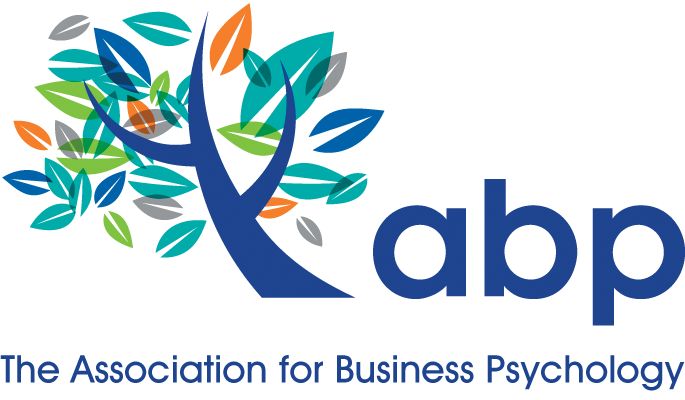Authored by Certified Business Psychologist Laura Howard. Certified Business Psychologist, Laura Howard, reflects on the webinar she recently delivered to ABP members. Below she outlines the main findings of her published research uncovering systematic barriers women face when being authentic as leaders. Importantly, she gives…

“Making the connection between ambition and business needs”
The NexGen editorial team were thrilled to connect with Antoinette Oglethorpe, a leadership development consultant, coach, speaker and author. In our interview, Antoinette shares the ABC of career management, underlining the need for a clear understanding of personal ambitions, the wider business needs and making the connection between the two.
Q1: Navigating through a wide line of work like business psychology can get quite complicated. How can an individual know what opportunities are available?
“Business psychology by the nature of it relates to business. In terms of opportunities, the most important thing would be to talk to people in business about how psychology is applied. For instance, the most obvious route potentially being HR practitioners depending on the size of the organization and sector. This might include a generalist HR person, or HR specialists in talent management, recruitment, reward & recognition, or L&D. Otherwise, talk to other consultants, or find alumni of existing associations and bodies within the business psychology area. Post academia, information is no longer delivered directly. Instead, an individual needs to navigate and seek out the people that might have the information they need. A great source would be the alumni that work in different fields – talk to them. Ask where and how they have used business psychology. For instance, consultants in organizational development, change management, leadership development, and Coaches”.
“Often, practitioners with a business psychology background do go into consultancy because of the nature of their specialism. But, also consider related and less obvious fields as a potential route. Sales, marketing, and communications are not necessarily considered as typical people psychology roles. Frankly, if they don’t have a basic understanding of psychology, they’ll be hopeless in those roles. Finally, anyone in a senior management role that involves getting the best out of people and therefore requiring an understanding of concepts around influencing, empowering, and developing their people. Business psychology may at first glance appear too broad. However, this widens the scope to consider any role that will have a need for skills involving people connections”.
Q2: With limited or no prior direct experience, how can a candidate make a case to a potential hirer that they are a good fit?
“Candidates always need to recognise that psychology is used every day in every walk of life. They can draw on examples where they have used their knowledge and understanding of psychology to influence, communicate, and manage etc. Many activities and projects outside of study can be used as examples of where skills have been utilised, even if not in a commercial setting. Direct experience can still be demonstrated by drawing on experiences from routine encounters. Individuals would need to be creative about how they can demonstrate they have the skills, rather than what has been done. The nature of the world helps with this. Once upon a time, recruiters would seek out experiences acquired in particular ways. However, the world in general is changing so quickly to the point of unpredictability, that it’s impossible to come up with all these ‘requisite’ experiences. Therefore, what’s more important is demonstrating agility. Do new things, learn from that, and ultimately apply that learning to new contexts. What is essentially being done is packaging a relatable experience differently so that its more relevant to the context”.
…How would this differ for an established individual wishing to switch professions or roles?
“Using my own example, my very first graduate role was developing washing powder for Procter & Gamble Company (P&G). Many years later, I decided I preferred people to washing powder and to move into training and development, or at least HR. P&G did not have that opportunity, so I took voluntary redundancy and was unemployed for 4 months. I applied for training and HR jobs, knowing I had never worked in this area other than delivering training as my extra-curricular involvement. I managed to get a job as the national training manager for a print franchise organization. I simply took the experience I had (albeit in the context of developing washing powders) and packaged it differently to what was needed as the national training manager role. In this respect, Business psychologists are in a really good position. As a candidate in a recruitment process, you have a sales role. It is about understanding a) the psychology of the person making the decision b) what they’re looking for, and c) how you are going to influence that decision”.
Q3: Job search strategies such as networking, informational interviews and applying for jobs have been strongly suggested for a role in business psychology. How should the search time be allocated between these?
“I’d say it’s less about the allocation of time, and more about the order of the process. Informational interviews are the most important first off. Not in terms of asking what opportunities are available but getting the insights into what the opportunities involve. Most jobseekers go straight into the job search and application far too soon. For instance, ‘this is me, here’s my CV, what do you think?’ As opposed to thinking about what they are looking for in a role, and therefore what the potential hirers with those opportunities are looking for in their candidate. Doing that research is important. When handling an informational interview, it is advantageous not to be too specific i.e. ‘I want to be a leadership development consultant’. Instead say for example, ‘I’d like an opportunity where I get to develop people, operate at this level, and do some public speaking’. Highlight whatever it is you want to be doing on a day-to-day basis. Avoid describing your ambitions in terms of job title, grade, and salary. Instead, describe it in terms of the experience you want to have at work. Such as, what you want to be doing on a day-to-day basis …who you want to be working with …what you want to be producing or delivering …and who for? That opens up more opportunities. It is better to go into these scenarios describing what you think you will be good at and what you would really enjoy doing. Jumping straight into job titles will only narrow the conversation straight down”.
Q4: For an employee that has a good idea of how they’d like to progress, how can they have those career conversations without limiting their options by being too specific?
“Expressing their ambitions in a broader way. Identify ways in which they can develop their own role that is helpful to the manager. The last thing a manager wants, is to be pushed into a corner by an ambitious and very talent individual placing demands on them that they may or may not be able to satisfy. Be broad in terms of the experience you want to get and present it in such a way that can be helpful to the manager. Maybe take some of the manager’s workload off them, do things that help e.g. if there is a particular experience they would like in order to develop a skill, volunteer for a particular task that will enable that. Identify how they be helpful to the manager in a way that can also be advantageous to them to develop experience, progress, and use the opportunity to demonstrate they can do more”.
Antoinette’s insights emphasize the distinct relationship between career self-management practices and career-related attitudes and focus. There is no surprise that emotional intelligence is at play here, where career self-management shifts beyond a focus on the self alone. As Antoinette points out “networking is not meeting people and talking to anybody to increase your visibility. You need to work on strategic relationship building. Who are the people that either know and have the answers to your questions in terms of what certain kinds of roles involve, or are decision-makers, or the influencers of those decision-makers? Really think about who these people are that you need to build relationships with. Networking activities need to be purposeful as opposed to attending every conference or networking event”.
As important as it is having career goals; the success in pursuing these can be elevated with a focus on what a person currently has to offer and making it relatable and more applied with respect to the context. Shining the light straight on to a possible job title is a straight conversation blocker, leaving the onus on the listener to work out the missing bits. There is a lot that can be done with a role, so what exactly is it about that role that is appealing? Specificity can still be applied without pinpointing it down to an explicit role. The key factor is experience and understanding, not the role. Antoinette’s insights around career conversations clearly provide a more efficient and rounded approach to career management.
Antoinette Oglethorpe

Antoinette is the founder of professional training and coaching company ‘Antoinette Oglethorpe Ltd’. With over 25 years’ experience developing leaders for companies like P&G and Accenture, her passion now lies with developing talent and leadership teams for fast-growth companies. She believes developing leadership talent in organisations relies on connecting employees’ career ambitions with the goals of the organisation. Subsequently, leading her to create the ‘Career Conversation’ Toolkit and ‘Career Compass’ resources, which can support not only managers, mentors and in-house coaches, but also provide valuable insights for those entering or transitioning within the workplace.
https://www.antoinetteoglethorpe.com/
https://www.linkedin.com/in/antoinetteoglethorpe/
https://twitter.com/antoinetteog



